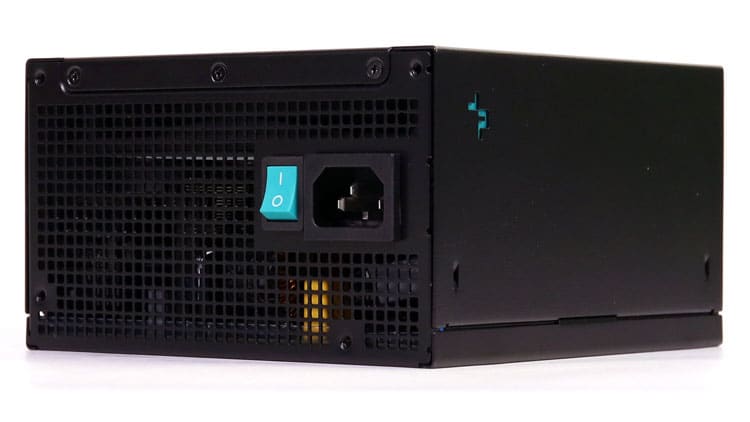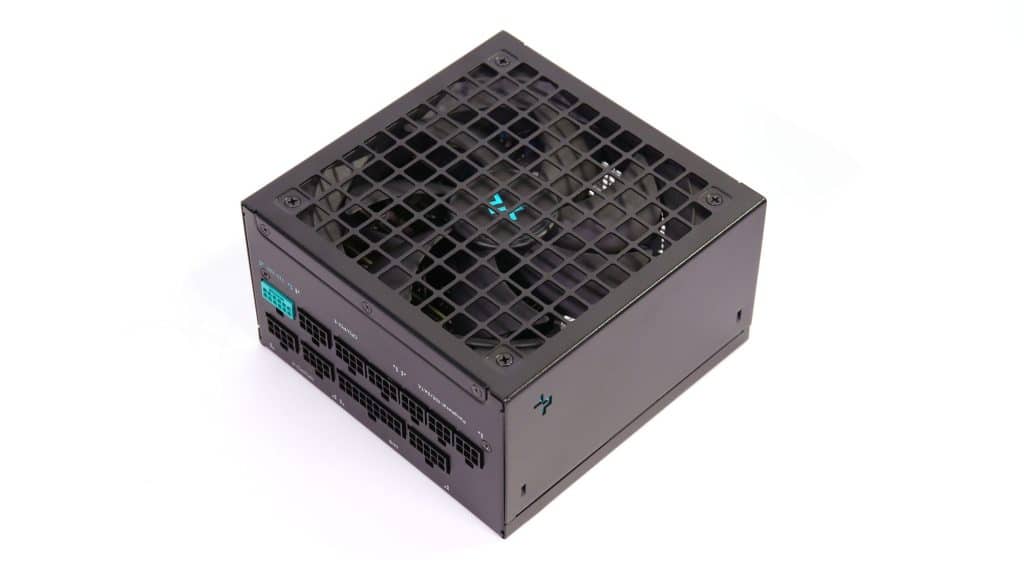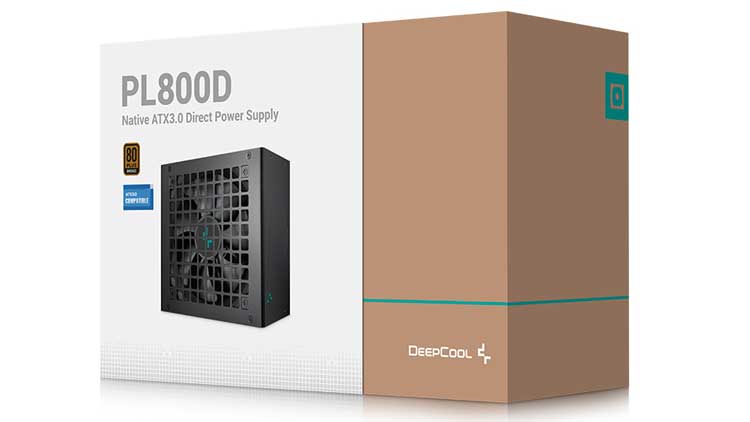Epilogue
The Deepcool PN1000M might use CWT’s omnipresent CSZ platform, but it focuses on lower budgets, so it doesn’t have many cables to restrict production costs. Still, the number of provided cables is enough to cover 99% of the usage scenarios. Moreover, Deepcool didn’t use Japanese caps on the unit’s secondary side to restrict cost, but this is not necessarily bad, given the results I have obtained so far in my capacitor evaluation tests. The general belief is that Japanese caps are the best while Taiwanese and Chinese caps are of low quality, but this is far from the case. Many years ago, this could have been the case. I don’t know since I didn’t perform any tests back then, but now things are different, and I have data to back this up, not just theory. The cooling of this unit handles a Hong Hua fan, so there is no question about its reliability through time.
Deepcool needs to fix this unit’s primary issue in the protection features section. The minor rails’ OCP triggering points are set sky-high, resulting in the death of my sample during the corresponding evaluation. There is no need for such OCP triggering points at 5V and 3.3V, and if you decide to offer such high amperage, you have to be sure that the VRMs can handle the load.
At 129 dollars, the PN1000M is among the most affordable 1000W ATX v3.1 PSUs. I don’t know when it will hit the market since Deepcool only provided me the MSRP price, but once it does, it will offer a budget alternative to users who don’t want to pay a premium price for an ATX v3.1 PSU. To give you an idea of the prices of the competition:
- Corsair RM1000e: $140
- MSI MPG A1000G PCIE 5: $160
- be quiet! Pure Power 12 M 1000W: $140
- ASUS TUF Gaming 1000W: $157
- Vetroo 1000W Power Supply ATX 3.0: $120
- ARESGAME AGT Series ATX 3.0 & PCIE 5.0 1000W: $110
- Thermaltake Toughpower GF3 1000W: $160
Given the above prices, the $129 price tag of the PN1000M price tag is good. Only the Vetroo 1000W is more affordable, but there are many complaints about coil whine noise in this model, and the ARESGAME AGT, which is from a brand I don’t trust.
Before investing in a new power supply, read my Best ATX v3.x PSUs article to check all alternative PSU offerings. You help me a lot by using my affiliate links, which don’t increase the product’s price. I get a commission from Amazon every time you do it, which can make a difference for me, especially now that I am on my own, working exclusively for my media and not for someone else.
- Good MSRP
- Delivered full power at 47°C
- ATX v3.1 and PCIe 5.1 ready
- Silent operation
- Good transient response at 12V (normal loads)
- Good soldering quality
- Low inrush currents
- Conservatively set 12V OCP and OPP
- Longer than 17ms hold-up time
- Low standby power
- Alternative Low Power Mode (ALPM) compatible
- Fully modular
- FDB Hong-Hua fan
- Enough cables and connectors, including a high-power one (12+4 pin, 600W)
- Ten-year warranty
- OCP triggering points need tuning on the minor rails
- Not competitive overall performance
- Average efficiency needs boosting
- APFC converter needs tuning for higher PF readings
- 12V rail’s voltage should be higher in the 200% load test
- Loose overall load regulation
- Low 5VSB efficiency
- ATX cable should be 600mm long
- Short distance (120mm) between peripheral connectors





oh yeah i love to see more chengx
I don’t get it. This is a lower tier (M) in comparison to Deepcool PN1000P, but it’s acoustic profile is much more pleasant as the higher tier “P”.